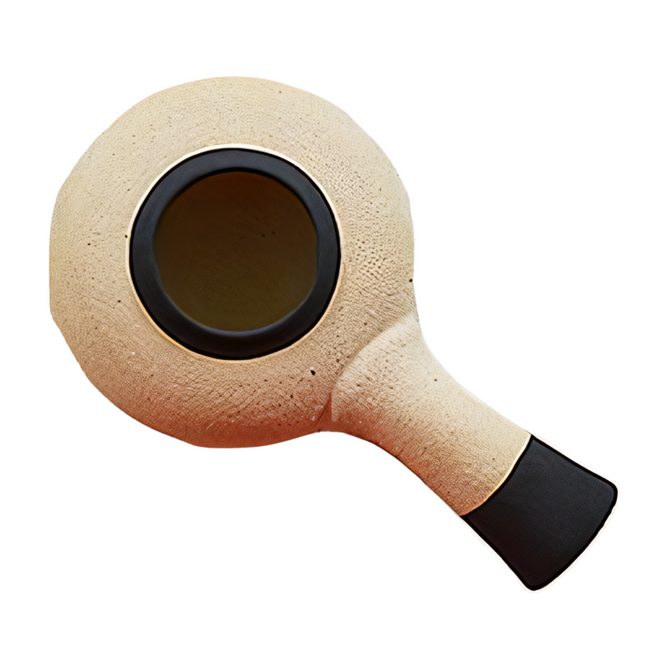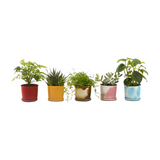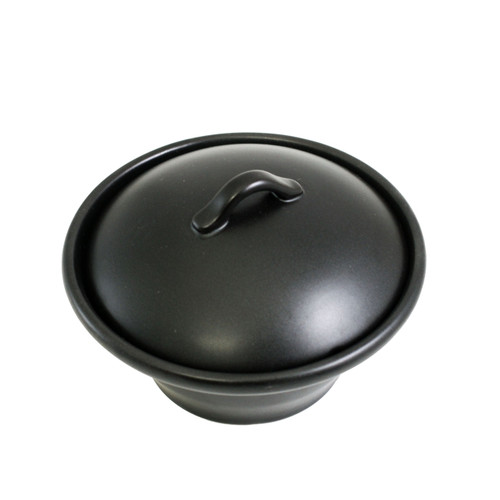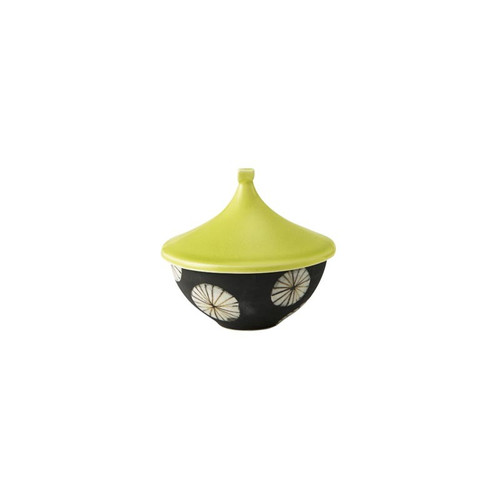
Traditional Clay Roasting Pot HOUROKU
Description
This handmade "houroku" is made from "Iga ware" - a type of Japanese unglazed clay pottery. "Houroku" is an old-fasion tool for roasting sesame seeds. It can additionally be used for roasting and steaming tea leaves, salt, rice, (soy)beans, ginkgo, coffee beans, etc.
NOTE: Cannot be used with IH cookers. Microwave, oven and dishwasher OK.
How to roast sesame:
Put the sesame in the bowl, put it on high heat, raise it about 5 cm from the stove and shake the bowl lightly. When you hear the crackling sound of sesame seeds about 30 times, remove it from the fire and continue to shake it gently until the noise stops. When the sound stops, transfer from the hole on the handle side to a container. When it gets cold, you can put it in a clean bottle and store it in the refrigerator.
Cannot be used with IH cookers. Microwave oven, oven, dishwasher OK.
WADAMAN is an Osaka based sesame specialist who farms their own sesame and sells high quality sesame products since 1883. Although sesame is an important ingredient in the Japanese kitchen, 99,9% of the sesame is imported from outside of Japan. WADAMAN therefore has been farming their own sesame since 2010 (for part of their line up). As the fourth generation of the family, Etsuji Wada is a true artisan with over 40 years of experience in handling sesame: everyday from 8am to 9pm.
Their sesame is certified organic, chemical fertilizers- and pesticide-free, and attains it's deep flavor by careful roasting techniques that have been perfected over the years. Wada argues their organic, authentic production methods combined with time, effort, passion and love is the secret behind their delicious products.
Sesame seeds are packed with healthy fats, proteins, carbohydrates, vitamins, minerals, dietary fiber, and the nutrients our bodies need. WADAMAN recommends eating 2 tablespoons (20 g) of sesame a day.
Customers Also Viewed

Worldwide Shipping!

150 Years History!

8000+ Curated Items!

3000+ Reviews
PRE-SALES
If you have any questions before making a purchase chat with our online operators to get more information.
Ask An Expert or find our Questions & Answers











NOTE: Cannot be used with IH cookers. Microwave, oven and dishwasher OK.